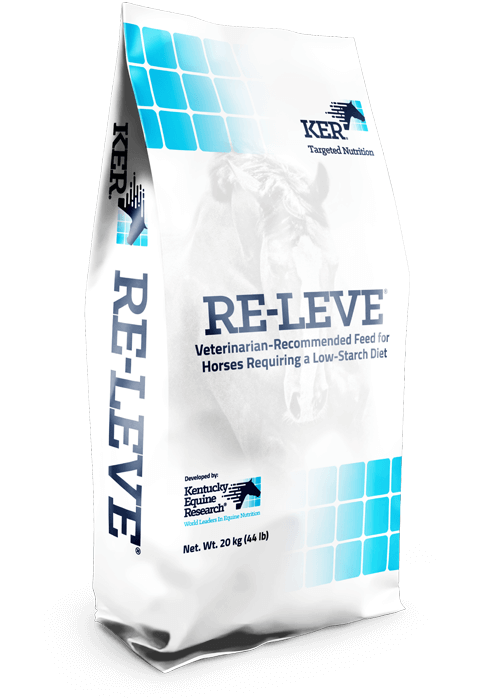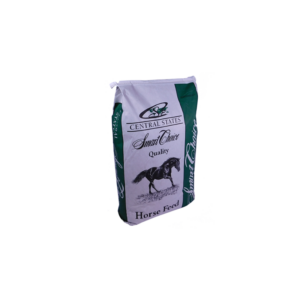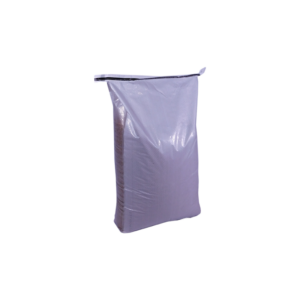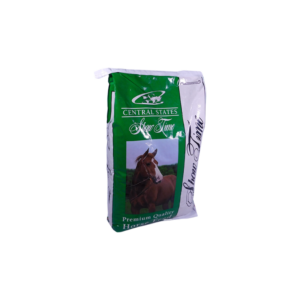Releve Original 12.5/12.5
Preferred Energy Source for Horses with Tying-Up Syndrome and Metabolic Disorders.
Veterinarian-recommended feed formulated for horses requiring a low-starch diet.
 Composition:
Composition:
| DE (min) | 3.30 Mcal/kg |
| Protein (min) | 12.50% |
| Fat (min) | 12.50% |
| Fiber (max) | 22.00% |
| NSC* (max) | 10.00% |
| Calcium (min) | 0.90% |
| Calcium (max) | 1.40% |
| Phos. (min) | 0.55% |
| Pot. (min) | 0.85% |
| Copper (min) | 42 mg/kg |
| Selenium (min) | 0.3 mg/k |
| Zinc (min) | 127 mg/kg |
| Vit. A (min) | 11,550 IU/kg |
| Vit. D (min) | 1155 IU/kg |
| Vit. E (min) | 440 IU/kg |
 Size:
Size:
44lb bag
Description
Feeding Guidelines
An athletic horse needs a forage-based diet with some mixture of fermentable fiber, fat, and grain-based concentrate properly fortified to provide vitamins, minerals, and sufficient energy for the demands of performance.
The need for additional energy is determined by an individual horse?s metabolism and level of exercise. The ration of a horse with any form of rhabdomyolysis must be designed to meet basic requirements but avoid loading the horse?s system with an excess of any nutrient that may contribute to muscle problems.
These points need to be taken into consideration:
- Recommended levels of selenium and vitamin E are usually met by grazing, hay consumption, and minimum levels of RE?LEVE?. Supplementation of selenium and vitamin E over this level is not generally helpful, with the exception of draft horses that may benefit from elevated levels of vitamin E.
- Electrolytes (sodium, chloride, potassium, calcium, magnesium) are quickly depleted as a horse exercises, particularly in hot and humid conditions. Use of an electrolyte can help to prevent some episodes of tying-up.
- Chromium supplementation at the rate of 5 mg per day has proven helpful, especially to nervous horses, possibly by assisting in glucose and glycogen metabolism. Conversely, because of its influence on insulin activity, the use of chromium may be counterproductive in horses with PSSM.
- RE?LEVE?, a concentrate with decreased starch and high levels of fat and fermentable fiber, is helpful to Thoroughbreds with chronic RER as well as Quarter Horses and warmbloods with PSSM.




